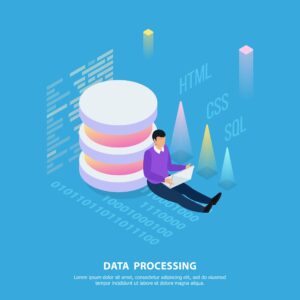The responsibilities and duties of a database administrator, or DBA, are always changing due to improvements in technology and shifting market demands. The main topics that DBAs should concentrate on in order to prosper and remain relevant over the next ten years will be discussed in this essay. In the dynamic field of database administration, DBAs can establish themselves as tremendous assets to companies by comprehending these changing trends and obtaining the required abilities.
Embracing the Cloud: Maximizing the Potential
- The increasing use of cloud-based database solutions and their advantages.
- DBAs must possess the necessary abilities and knowledge to manage databases in cloud environments.
- Techniques for performance optimization and cloud database migration.
Strengthening Security and Compliance Measures:
- Data security and compliance are becoming more and more important in light of changing legislation and risks.
- Best practices for safeguarding private information and securing databases.
- Recognizing the effects of important laws like the CCPA and GDPR on DBAs.
Leveraging the Power of Big Data and Analytics:
- DBAs’ function in organizing and deriving meaning from enormous volumes of data.
- An overview of big data technologies, including NoSQL databases, Spark, and Hadoop.
- Effective data management can be achieved through integration strategies, data lakes, and data warehousing.
Automation and Scripting: Streamlining Database Operations:
- The growth of scripting and automation in database administration.
- Tools and scripting languages for automating backups, monitoring, and regular operations.
- Tools for configuration management that make database deployments more effective.
Integrating Databases into DevOps and CI/CD:
- Recognizing the influence of the DevOps culture on database management.
- Developing database-specific pipelines for continuous integration and continuous deployment, or CI/CD.
- Handling database modifications and coordinating database deployments in a DevOps context.
Exploring Data Virtualization and Containerization:
- The advantages of data virtualization include the ability to examine data from several sources in one cohesive view.
- Docker and Kubernetes are examples of containerization technologies that make database deployment and management easier.
- The flexibility and scalability that containerized databases provide.
Harnessing Machine Learning and AI for Data Analysis:
- An introduction to AI and machine learning technologies and how they apply to DBAs.
- Predictive analytics, anomaly detection, and data analysis using ML and AI.
- Overview of well-known ML and AI frameworks and tools for database administration.
Data Governance and Ensuring Data Quality:
- The significance of data quality and governance for efficient data management.
- Frameworks for guaranteeing data integrity and putting data governance procedures into operation.
- Methods and resources for cataloging and evaluating the quality of data.
Conclusion
To meet the expectations of the future, DBAs must adapt and pick up new skills as their work continues to change. DBAs can establish themselves as essential players in the dynamic field of database administration by embracing cloud technologies, bolstering security protocols, utilizing big data and analytics, embracing automation and scripting, integrating with DevOps practices, investigating data virtualization and containerization, utilizing machine learning and artificial intelligence, and emphasizing data governance and quality. Success in this rapidly evolving industry will mostly depend on networking, lifelong learning, and keeping up with the latest developments.






